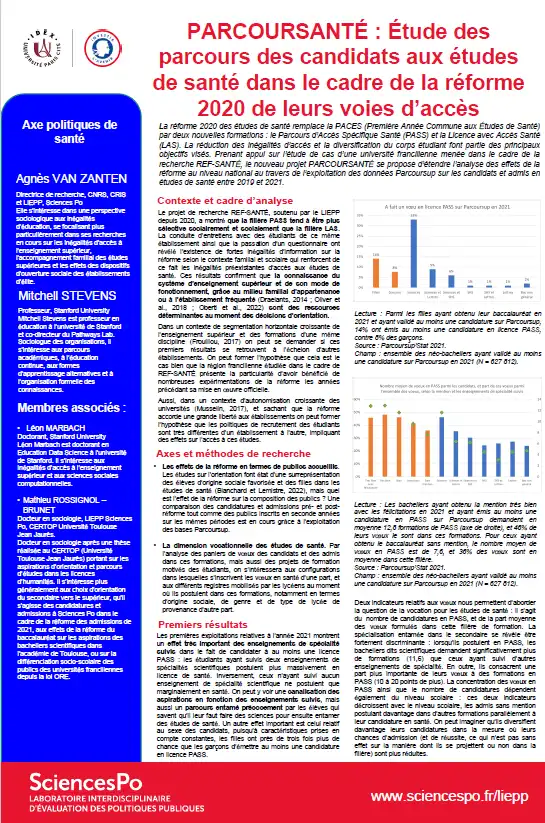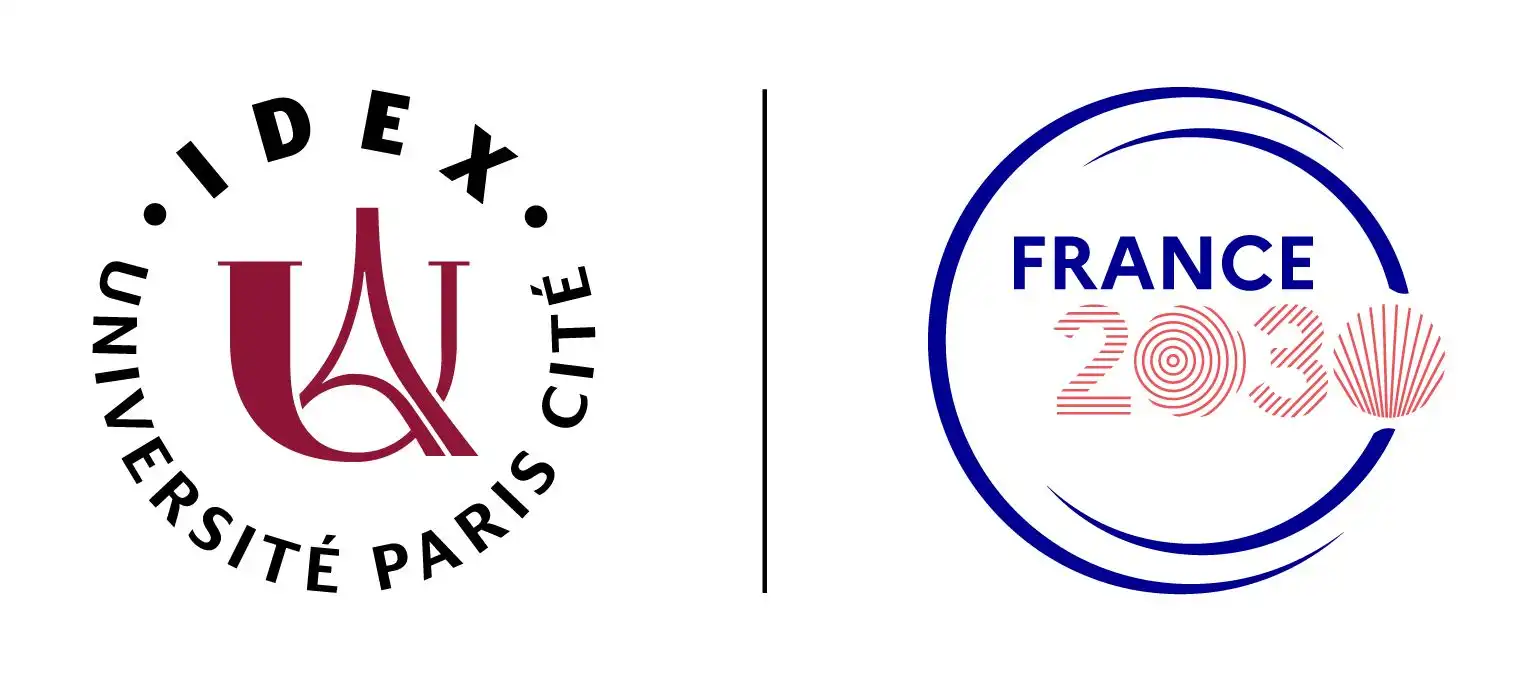
Home>Research>Project>Etude des parcours des candidats aux études de santé dans le cadre de la réforme 2020 de leurs voies d’accès (PARCOURSANTE)
Etude des parcours des candidats aux études de santé dans le cadre de la réforme 2020 de leurs voies d’accès (PARCOURSANTE)
Project holders :
- Agnès van Zanten ( CNRS, CRIS)
- Mitchell Stevens ( Stanford Graduate School of Education )
Research team :
- Léon Marbach ( Stanford Graduate School of Education )
- Mathieu Rossignol-Brunet ( Sciences Po, LIEPP)
Project description :
The 24th of July 2019’s law on the organization and transformation of the French healthcare system has led to the reform of the undergraduate health studies, effective from the start of the 2020 academic year. In replacement to the First Common Year of Health Studies (PACES), introduced in 2010, it creates two new access routes after the baccalaureate: the Specific Health Studies Access Pathway (PASS) and the Health Studies Access Bachelor (LAS). Explicit objectives are better social and institutional efficiency to fight against "medical deserts", a diversification of the profiles of future health professionals, the improvement of health studies in order to train more "human" professionals, and the reduction of inequalities. Following on from the case study of a university in the Ile-de-France region conducted within the REF-SANTE research project, the new PARCOURSANTE project proposes to extend the analysis of the effects of the reform to the national level through the use of Parcoursup data on health studies applicants and admits between 2019 and 2021.
Poster of the project - July 2024


